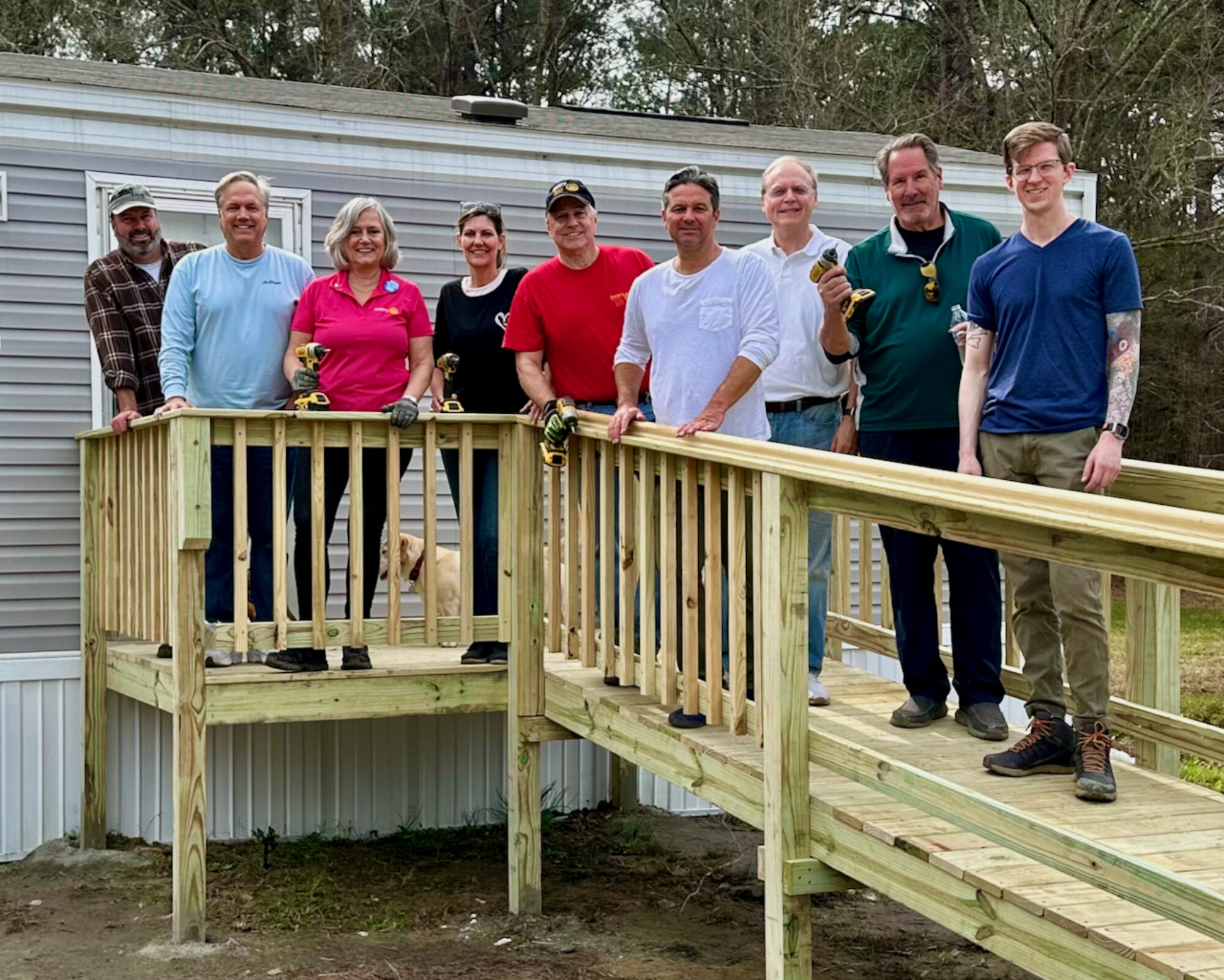Play Hard and Play to Win – The Citadel Basketball Program
Nov. 9, 2010: Rotary member, Ed Vaughan introduced today’s speaker, the Citadel’s new head basketball coach, Charles “Chuck” Driesell with a brief personal and professional bio. Born and raised in Maryland, Chuck attended the University of Maryland where his father, Charles Grice “Lefty” Driesell, was the head basketball coach. Chuck was a four-year letter winner and Academic All-ACC. Ed noted Chuck’s coaching highlights including winning seasons at James Madison, Marymount University and Maryland.
Chuck began his presentation remarking on the 2 main differences between and Maryland and Charleston: the weather and the color blue. Charleston’s warm weather has been a confusing adjustment as cold weather always meant basketball season in Maryland. But with a closet of new blue shirts and elimination Terrapin red, there’s no question Bulldog basketball season is days away.
Chuck’s relationship with The Citadel began years ago as a high school senior weighing the options of Bulldogs versus Terrapins. Ultimately, the idea of uniforms and early mornings convinced Chuck to attend Maryland. 29 years later, he has inherited a team of uniformed, early rising basketball players. A team, he believes, has the discipline and skill to deliver a winning season.
The Citadel’s rising starts include Cameron Wells, a Citadel senior and “special player”, Zach Urbanus , the all-time leader in Citadel 3 point history and Austin Dahn, a “smart player” predicted to have a “break out year.” Chuck explained that with the combination of Wells, Urbanus, Dahn and “pick up players,” his “inside – out” system will deliver success. The “pick up players” are 5th year eligible transfer students who have the crucial size to play with their backs to the basket. Their addition to the team is invaluable as Chuck noted, “you can’t teach size.”
Chuck’s “play hard, play to win” mentality and excitement for the season and his players was evident as he encouraged the audience to attend their 13 home games and fill the Field House’s 6,000 seats. Chuck’s 16 players are only part of his team; his newly hired staff provides the discipline and role models each player needs to apply the “play hard, play to win” attitude for their lives on and off the basketball court.
During the Q&A session, Chuck answered the following questions:
Q: Best game you ever watched? A: When Jordan scored 61 points at the Boston Gardens.
Q: What will the team look like next season? A: 8 seniors lost in 2011 but 7 freshman gained in 2010
Q: Difference coaching military players? A: 1) Manage time; 2) Work around player’s schedules; and 3) Watch health and weight of players who have less sleep than the average college student
Q: Community involvement? A: The players and coaches are only “a phone call away” and are always willing to speak at schools, organizations, etc.
Q: Family relocated? A: Yes, living in Mt. Pleasant with one daughter at Wando and one at Laing.
Q: Difficult adjusting to a “football town”? A: No, you find out what you have and sell it hard, and I’ve been pleasantly surprised.
Reported by Teal Van Saun, Keyway Committee

